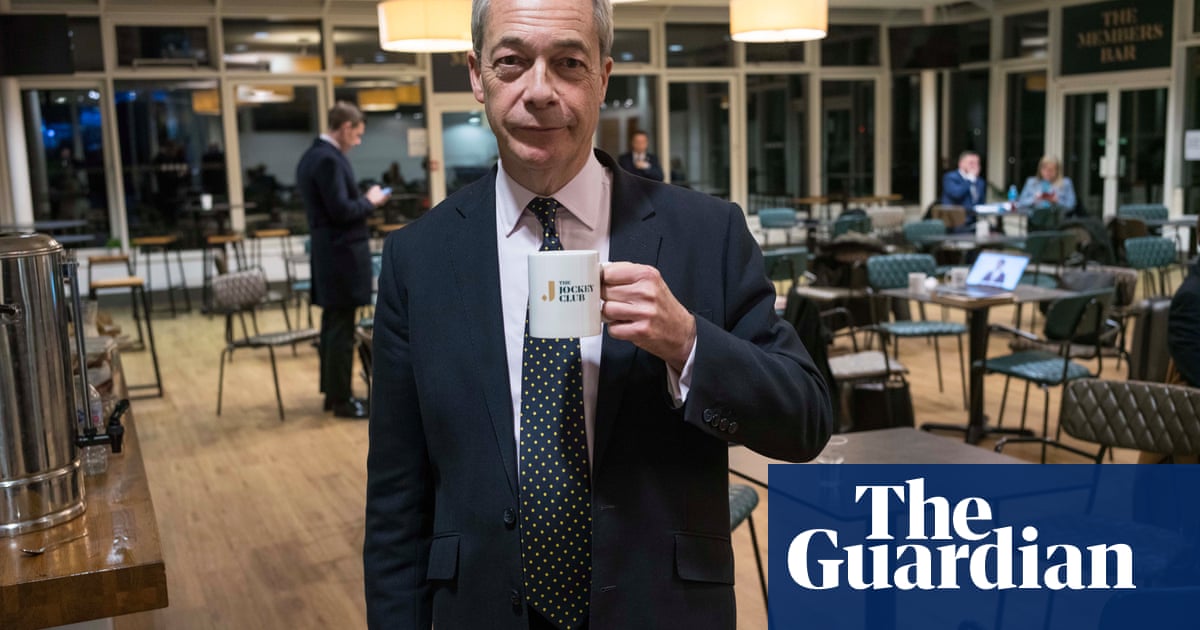Kemi Badenoch’s election as leader of the Conservative party is a strikingly historic political and personal achievement. “To all intents and purposes, I am a first-generation immigrant,” she told the Commons in her 2017 maiden speech.
She was born British, as Olukemi Olufunto Adegoke, in a Wimbledon hospital in December 1980, before her parents took her home to Nigeria. Badenoch was among the last to benefit from the birthright citizenship rules which her heroine, Margaret Thatcher, would soon abolish in the 1981 British Nationality Act. She has compared her British passport to the golden ticket that let Charlie Bucket into Willy Wonka’s chocolate factory.
Badenoch’s migration journey has shaped her worldview. She flew back as a 16-year-old to the Britain of 1996 – a country where no black or Asian citizen had ever been a government minister. She has said that being “a very angry young person” got her involved in politics, pushed rightwards by feeling patronised by careers advisers and development campaigners who did not value African voices.
Badenoch says that she wants skin colour to be no more relevant than hair colour – yet the identity politics of Kemi Badenoch often sound much more colour conscious than that. “I am Labour’s worst nightmare, they can’t paint me as prejudiced” was a recent Telegraph interview headline. There is a tension too with her call for migration policy to reflect how much cultural differences matter.
Badenoch’s own experience of opportunity opening up underpins her insistence on Britain being the best country in the world in which to be black. Yet more than three-quarters of black Britons valued the message of the Black Lives Matter anti-racism protests in Britain – that the progress made leaves much more to do – while Badenoch primarily feared importing America’s racial conflicts to Britain.
She supported Tony Sewell’s review of ethnic disparities in its effort to reframe the narrative. Yet that turned the true story of an increasingly complex pattern of opportunities and outcomes into an extraordinarily polarised culture clash. As equalities minister, Badenoch pursued a much more constructive lower profile, such as her Inclusive Britain policy agenda which aimed to narrow the remaining gaps.
That has led some on the online right to now characterise her as too “woke” herself, while the left calls her a culture warrior on race and gender. Asked in the GB News leadership debate if it was time to call off the culture wars, Badenoch rejected that label as a “dog whistle to attack the right”. “We are defending our culture, we are defending our country,” she said.
Kemi Badenoch versus Robert Jenrick was an accidental contest after MPs playing tactical games eliminated James Cleverly by mistake. Robert Jenrick bet everything on Tory members choosing whoever offered the most red meat on immigration and human rights to win back votes lost to Nigel Farage. Tory members have defied stereotypes by rejecting that offer.
By turning opposing the ECHR into a new Tory litmus test, Jenrick gifted Kemi Badenoch new allies; George Osborne was among those surprised to find himself voting for her. Badenoch has somehow ended this contest as the “broad church” unity candidate within the party, despite her polarising reputation beyond it.
Keir Starmer’s instinct may be to avoid debating Badenoch on identity issues. There is some strategic sense in that. The success or failure of Rachel Reeves’ social democratic budget and the contrast with Badenoch’s instinct that the state should significantly shrink will most shape this era of British politics.
after newsletter promotion
But governing an increasingly diverse Britain in volatile times requires an agenda for managing our differences and bringing people together. Those who disagree with the identity politics of Badenoch should be able to set out what they would say and do instead.
-
Sunder Katwala is director of British Future and former general secretary of the Fabian Society

.png) 2 months ago
19
2 months ago
19













































